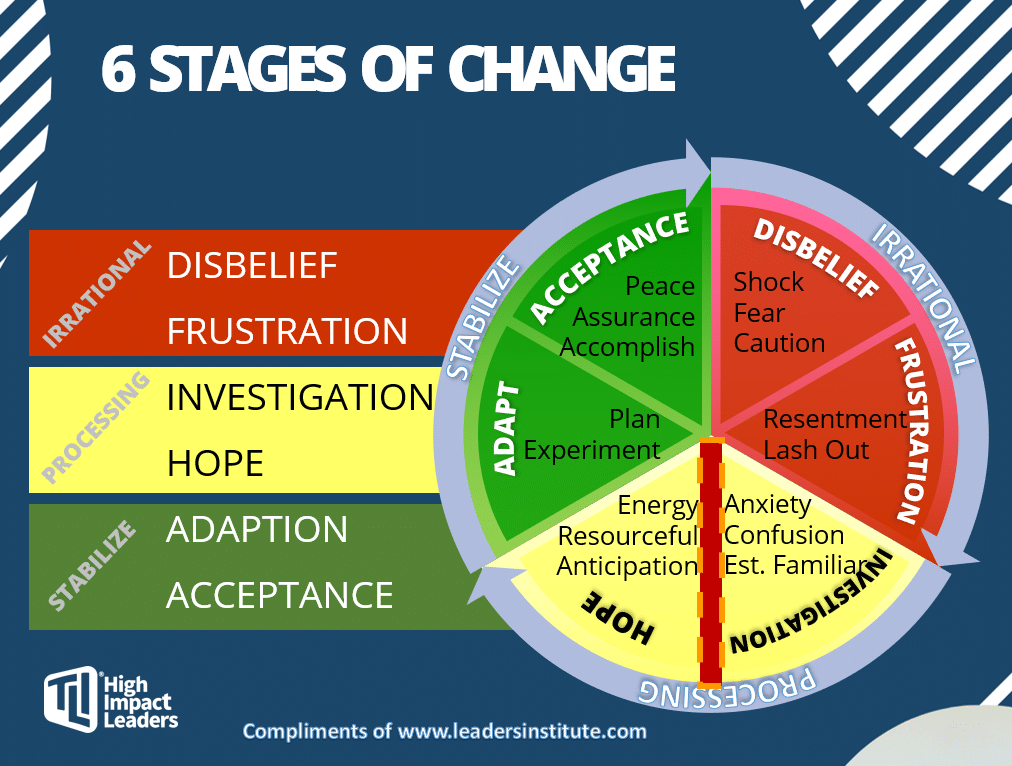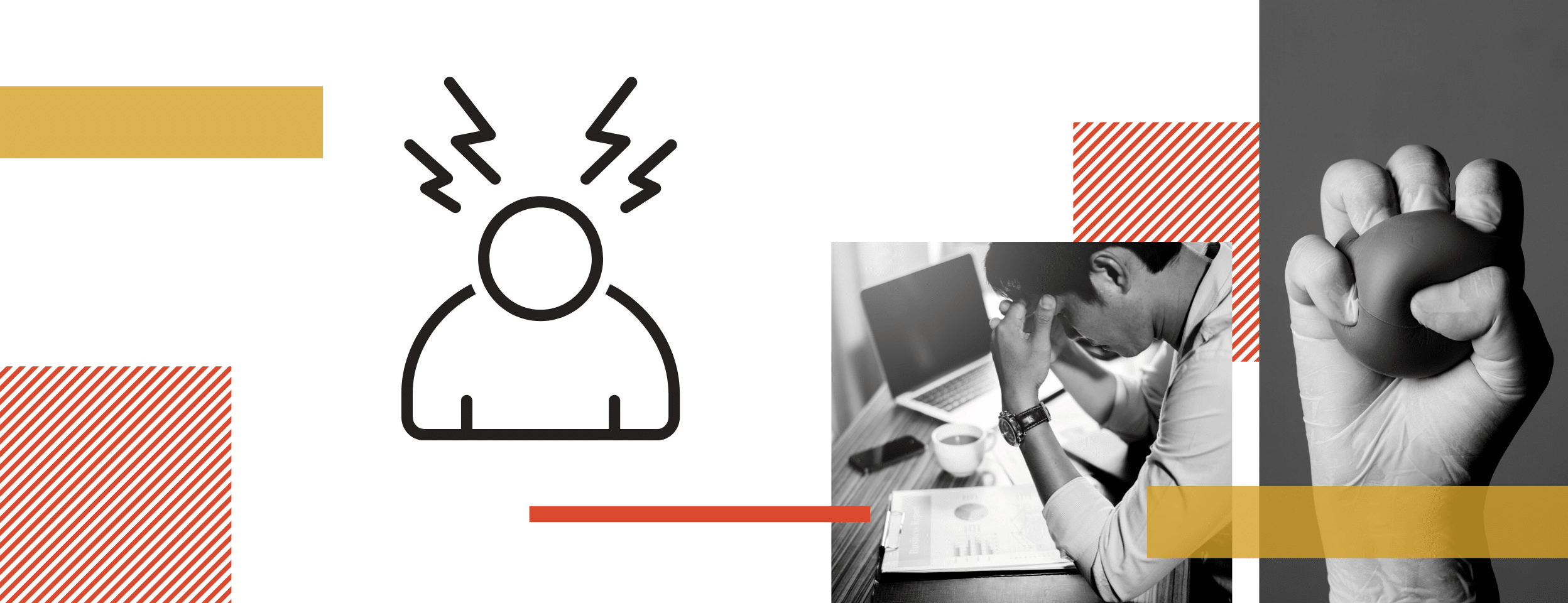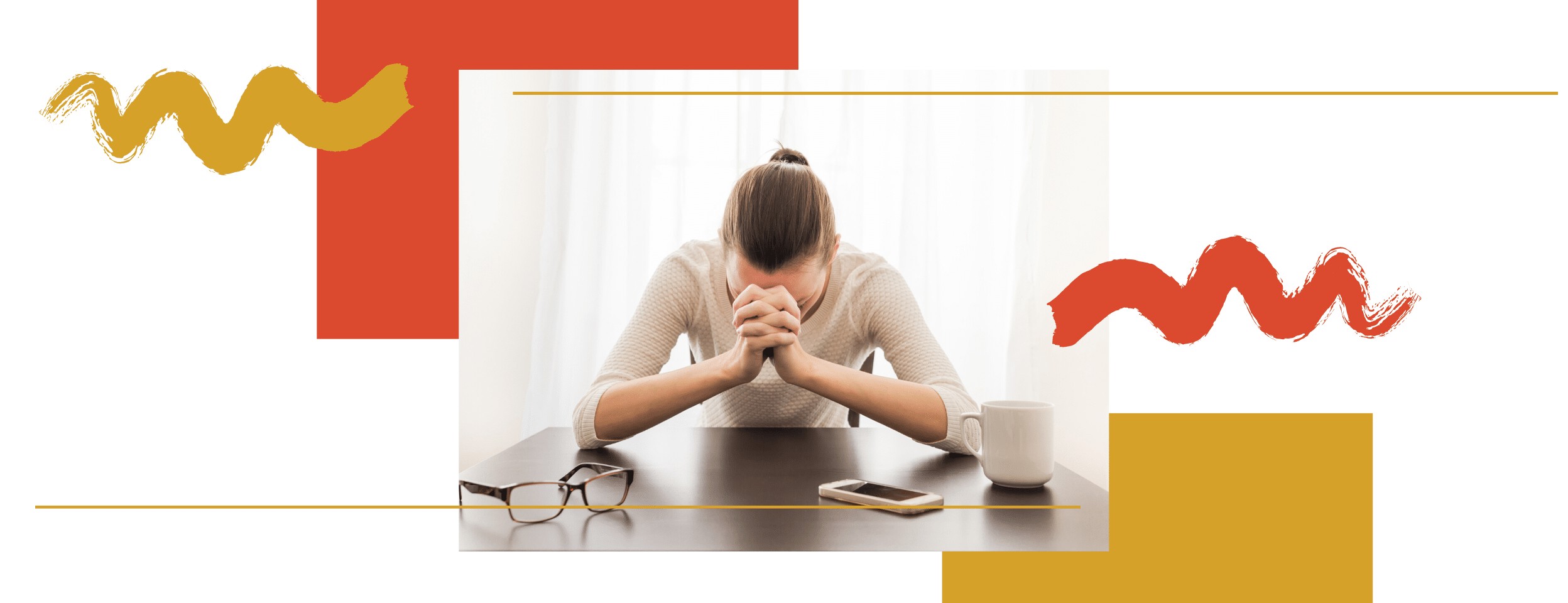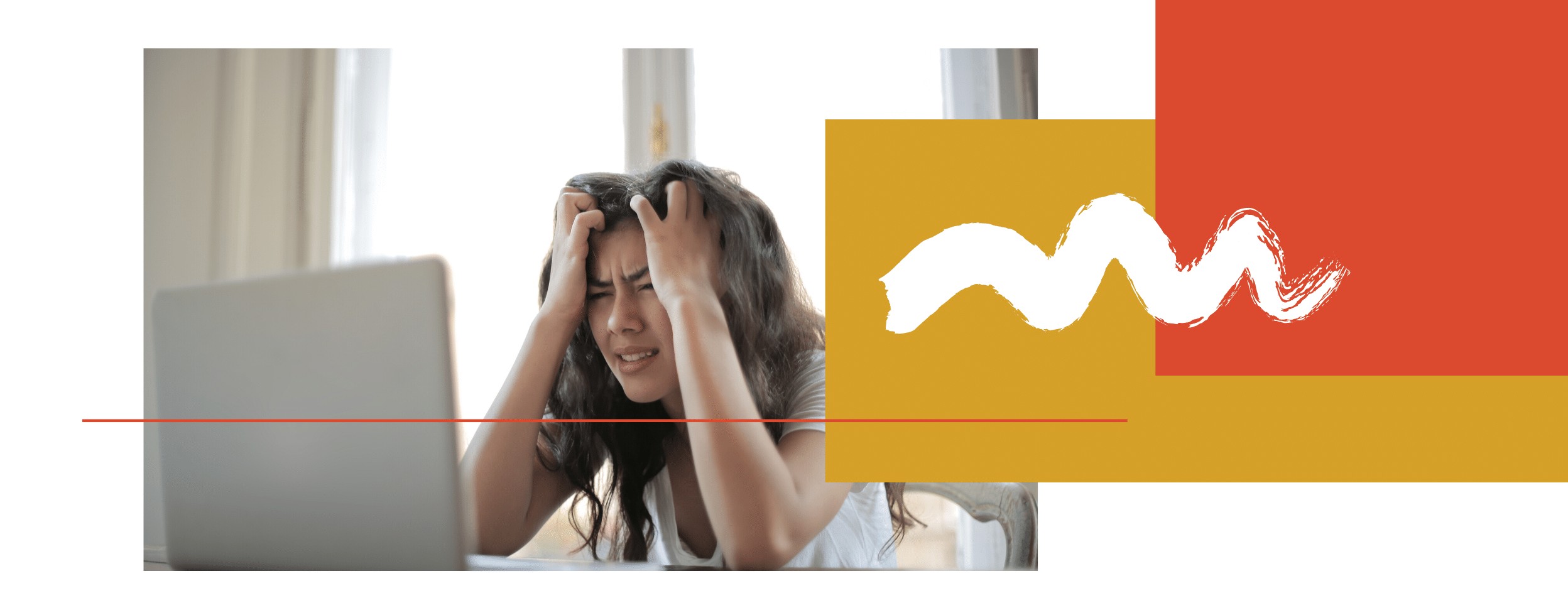Tipping Point: Reduce Stress and Increase Productivity in a Uncertain World
Stress is not all bad or all good. We all have good and bad stressors in our lives. Positive stress helps us accomplish our goals and achieve tasks, while negative stress tends to spike our anxiety and cause discouragement. Today we are going to walk through the ways to stay positive and productive even when you are under an immense amount of stress.
Warning Signs of Negative Stress
First, let’s discuss the warning signs of negative stress. Emotionally you might be feeling overwhelmed, getting easily aggravated, and have a difficult time relaxing. Physically you could be experiencing low energy levels, insomnia, digestive problems, and headaches. Not to mention the racing thoughts, inability to concentrate, forgetfulness, and negative thoughts. All of these things can be crippling.
The Warning Signs of Stress Can Add Additional Negative Things to Happen.
For example, 2 weeks before my wedding, I lost service on my phone. If you have ever interacted with a bride right before her wedding, you know that they are highly stressed. I woke up and saw that my phone was not working. So, I called them (on my fiance’s phone) and yelled at the poor lady who answered. Normally, I would not have reacted so harshly. Because I was so stressed out I was feeling overwhelmed, I got frustrated way more quickly.
Another thing that can happen when you are overwhelmed by stress is a change in your behavior. This can include drinking more, drug use, change in appetite, procrastinating, and nervous behaviors. I think the important thing to remember when you are noticing your behavior change is to remind yourself that the stress you are experiencing is normal and that if you do not like how you handling it you can change it. There are a lot of resources and people that can help you through hard times. The best thing you can do is reach out and say that you need help.
Garbage In, Garbage Out
Growing up my grandmother told me “Garbage In, Garbage Out” all the time. Basically it means that if you put garbage into yourself, garbage is going to come out of you. Often times this was a reference to being mindful of who I was hanging out with, what music I was listening to, and what I watched. The same applies to dealing with stress. If all you do is absorb the negative information and you make confidants out of naysayers then negativity is what will come out of you.
Take a break from the news, walk away from negative conversations, make sure you are still active with your hobbies, and get outside to get some sunshine. Do not underestimate the power of sitting outside or walking in the sunshine.
The 6 Stages of Change. The Faster You Adapt to Change The More Positive The Outcome
Change is inevitable. The faster you adapt to the change the more positive the outcome will be. We are a company that counts on people gathering for events and training. When the coronavirus took over our country we had two options. We could close our doors and be upset and mad about everything or we could adapt.
Our company chose to adapt and within a couple of weeks put together multiple virtual team building and training programs. Initially, we looked for ways that companies and individuals could connect and still get the training they wanted. We knew we could not control the lockdowns, shelter in places, school closings, or government decisions. So, we didn’t focus on these things.
We also knew that these things were only temporary. Adding in virtual programs would fulfill a current need and we could keep it for companies who do have the ability to bring everyone together.
If you understand the 6 Stages of Change, recognize them, and respond effectively, you can thrive.
Stage #1: Disbelief

The first stage is the Stage of Disbelief. In this stage, you experience shock, fear, and are moving forward with a heightened sense of caution. In this stage, you are also not thinking rationally. For example, if you got laid off you might be thinking things along the lines of “This is not real. He is joking… He is an idiot for letting me go!”.
In mid-March, our company was in trouble. We primarily generate income from big meetings and conventions. In February, we had hundreds of contracts that were to be fulfilled in March, April, and May. We also had hundreds of thousands of dollars in inventory for these events. In February, we started getting calls from clients who wanted to postpone because of Covid. In March, they all started canceling.
On one Friday, my boss invited the office staff to lunch. He said that we only had enough capital left to pay salaries for about another month. By Monday morning, it had gotten much worse. He met us all as we came into the office. We were going to have to layoff the entire staff until business picked back up.
It was as if we were all walking around in a fog. Nothing seemed real. (Luckily, the boss moved through this phase quickly, and we only had about 48 hours of layoffs. More on that later.)
Stage #2: Frustration
Then you move into the Stage of Frustration. This is when everything makes you mad. The way your spouse breathes, getting even madder that you were let go, yelling at the pot that fell out of the cabinet because you shoved it in there in a rush (I am totally not speaking from experience), and walking around with a frown on your face.
In this stage, we feel like a victim. Everything that is bad is someone else’s fault. This stage is very dangerous. The longer that we stay in this phase (or the more times you come back to it in a short time period,) the greater the chance of reacting irrationally. (See the phone example above.)
Because we are reacting irrationally, we tend to take out our frustrations on people who didn’t cause it. We have misplaced anger.
If you look at the unrest in the big cities since George Floyd’s death, you will see how this can erupt. People in Atlanta, Portland, and New York directed their anger at people who never came within 1500 miles of Mr. Floyd.
If your hours got cut because of Covid, you may be angry at your manager or boss. You may be angry at your local school because your having to take time to help your kids with Zoom calls. All of this anger is normal, but it is misplaced.
Stage #3: Investigation
The next phase is when you really start to process what has happened. The first stage in this phase is the Stage of Investigation. This is where you try to establish some familiarity, you might feel some confusion, and you are starting to look at how you can adapt to this change.
For instance, you may have gotten laid-off or had your hours cut, but you still wake up at the same time. You want to keep to your established routine. Or, maybe your gym got closed, so you went out and bought exercise equipment for the home.
At this point, a lot of people will ask themselves a question like, “Well, some people are doing okay at this time. Why does it seem like I am being hurt when others are not?”
This is a very critical time during the process. If your answer to this question is, “Because [an antagonist] is out to get me,” you will fall back into Stage #2 — Frustration. The antagonist could be my boss, my mayor, my governor, the president, Democrats, Republicans, racists, people who don’t wear masks, people who wear masks, protestors, or any other evil person/thing you can think of.
If, however, you respond by looking at a way to positively adapt to the change, you move to Stage #4.
We call this the danger zone. Your attitude determines whether you adapt or fall victim to circumstance.
Stage #4: Hope
If you respond with a more positive attitude you can enter the Stage of Hope. This is when you feel energized and you can start to see the light at the end of the tunnel. You will start coming up with new ideas. Creativity starts to blossom.
For us, we saw this as the perfect way to reach out via social media to many of our followers.
In addition, my boss always wanted to spend more time creating online courses and training sessions. Prior to Covid, though, we just didn’t have a lot of time. When Covid hit, though, we had a LOT of time. So, we spent the first month or so creating an entire online library of online leadership courses and online public speaking courses.
We also started looking to do more online coaching and virtual sessions. The ideas were flowing, and the energy in the company erupted. We were having fun creating new solutions during a challenging time.
Stage #5: Adapt
Then you move into the rational phase where you can think clearly and rationally. You start off by adapting and experimenting to see what works. For instance, we started doing live training sessions via Facebook Live. We had a lot of fun. However, it took three to four days to create the content each time we delivered them. We also collected no revenue from the sessions. So, we went back to the drawing board.
We were able to create 30 minutes to an hour of very effective and professional online training every couple of days. So, that is what we did. At first, we were charging a fee for customers to experience each mini-course. After we started developing a pretty extensive library, though, we now just charge a low monthly fee to access the content.
By adapting to the situation, we are now able to service thousands of new customers for a much lower fee. Everyone wins!
Stage #6: Acceptance
Eventually, you get to the Stage of Acceptance. Where you accept the change and you feel peace about it. In many cases, you start to think, “This is even better than we had before!” I’ll give you a couple of examples.
First, when Covid first hit, our in-person public speaking class division was experiencing negative revenue. As we started adapting to providing virtual coaching, we solved a lot of challenges that used to be very serious.
For instance, we schedule in-person public speaking classes in different cities all over the world. If we don’t get enough people in a specific city, we have to cancel classes. Sometimes we schedule classes too far apart so they fill up and we have a waiting list. These classes are also expensive to deliver. We have to rent meeting rooms, pay for refreshments, and send instructors to each city. With virtual classes, almost all of these challenges are eliminated. We are able to offer virtual classes for almost half the price of our in-person classes.
Another example is our Virtual Escape Room. Years ago, we created a really fun team escape room. By the way, it is one of my favorite team activities to teach. It is an absolute blast. However, our logistics team hates this activity. Every kit takes a few hours to create, and if they make a single mistake, the event doesn’t work. A few months ago, we moved this activity to a virtual delivery. It now takes us just seconds to create the entire event for a customer.

Don’t Give Up. Change Is Hard, But It Is Also an Opportunity!
Stressful times are hard and we want to remind you to not give up. You are not in this alone and what you are experiencing is TOTALLY NORMAL. If you want other resources to help manage a team virtually, deal with stress, or training do not hesitate to reach out to us. We would love to help you and your team!
Sincerely, The Fearless Millennial


